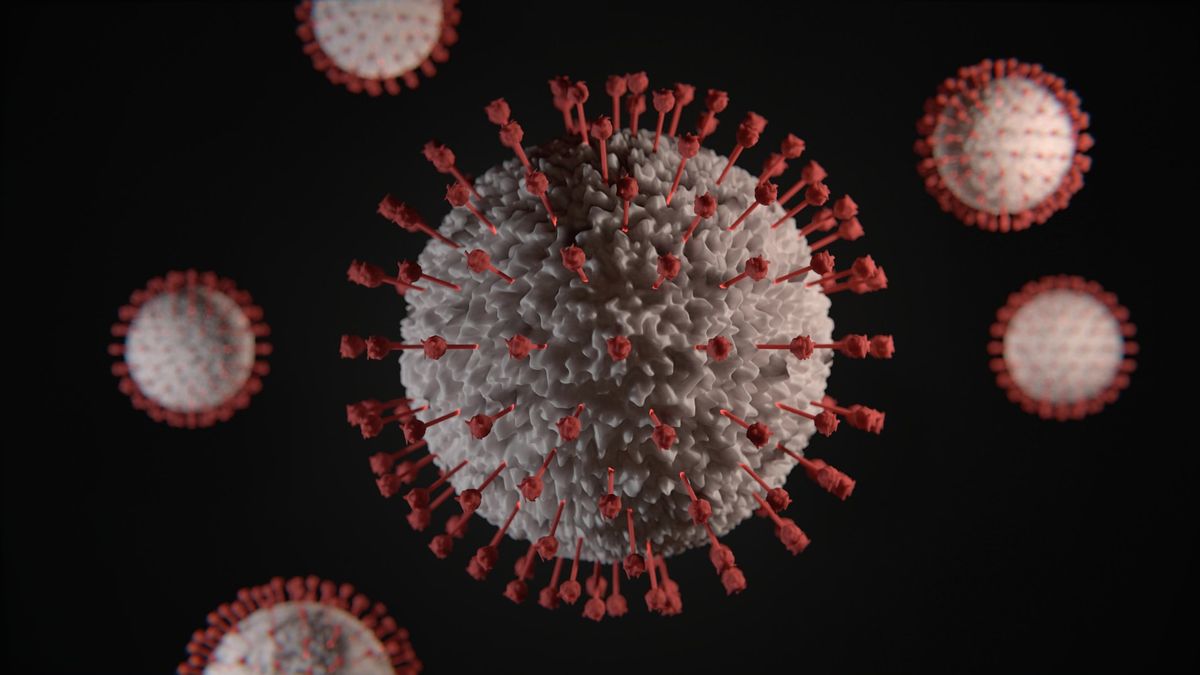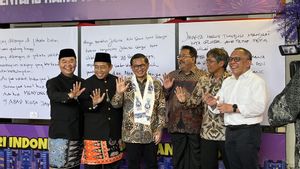JAKARTA - The COVID-19 pandemic in Indonesia is believed to have started to slow down. But epidemiologists also warned of the threat of a third wave that is still possible in December.
One indication that COVID-19 in Indonesia is starting to decline is the case reproduction rate, which has fallen below 1. In addition, the positivity rate has also fallen to 1.31 percent, lower than the World Health Organization's standard of 5 percent.
"For the first time, Indonesia's Rt is below 1. This means that the risk of transmission has decreased," wrote University of Indonesia epidemiologist Pandu Riono, quoted on his personal Twitter account, Saturday, September 18.
To note, RT is the Reproductive Number at time or the average reproduction of transmission. The reproduction rate is a way of ranking the ability of a disease to spread. "Rt = 1, one person infects another person Rt = 4, one infected person can infect 4 other people, and so on. If the Rt is less than 1, it means that the risk of transmission decreases and it is hoped that new cases will decrease," explained Pandu .
Meanwhile, on the other hand, an epidemiologist from Griffith University, Dicky Budiman, warned of the threat of a third wave that is still lurking. If originally predicted to appear in October, the third wave is now expected to be pushed back to the end of the year.
"Earlier, I always said that the potential for the third wave would be in September. This is the potential for the third wave to be withdrawn. Previously, it was October, it was postponed again to December," said Dicky in an online discussion, Friday, September 17.
Dicky emphasized that the current decline in COVID-19 should not let anyone off guard. He also reminded that health protocols must still be adhered to, while testing and tracing must still be intensified as an effort to control the pandemic.
"The combination of 3T, 3M, including the combination of vaccinations, makes the potential for the third wave even more backwards, so it's getting a bit sloping, so it's pressing," he concluded.
Minister of Health Prepares Strategy to Control the Pandemic to EndemicHealth Minister Budi Gunadi Sadikin said he was preparing a number of strategies to control COVID-19 from a pandemic to endemic and transform the health industry. But according to him, vaccination is not the only strategy to reduce the rate of transmission.
"There are four, 3 of them are strategic in nature, and one strategy is tight, including nursing at the hospital, which is important in front of detection. Now, vaccination is one of them not the only strategy," said Budi at the Wealth Wisdom 2021 event virtually, Saturday, 18 September.
Budi reminded again, that the most important thing is the application of 3 M, wearing masks, washing hands and maintaining distance. Then detect with 3 T, Testing, Tracing and Treatment.
"For example 3M, if we wear masks, it will reduce the transmission rate by 95 percent. Why do we have to do testing, tracing and treatment, because we test quickly, we know who has been infected, we quickly know who is infected, we isolate quickly, reduce the transmission rate," " he said.
Nevertheless, continued Budi, vaccination is also important to make human antibodies ready for virus exposure. So, he said, if exposed to it, it could reduce the duration of healing, for example from 14 days to only 5.4, or just 3 days.
Budi assesses that turning a pandemic into an endemic is not an easy thing. Because, according to him, nothing in the history of a pandemic has been completed quickly.
"Humanity has experienced pandemics many times. I see the history of the Black Death, tens of millions died, then in the world war there was the Spanish Flu, then there was Polio, Smallpox. The fastest is 5 years, polio may be hundreds of years and still there is not finished- finished," he said.
Budi admitted that he was ordered by President Joko Widodo to transform the health industry after the pandemic. The Minister of Health has also prepared 6 frameworks. First, about primary care or primary health care.
"Because we feel that the most important thing is that it is much more effective, cheaper, and more comfortable than the second transformation, namely second re-care," he said.
Budi explained that the second re-care is a transformation of how referral services are to hospitals. The third framework of the health security system. Fourth, the health payment system.
"Fifth, the transformation of health resources such as people, especially doctors. Lastly, the transformation of health technology information," he concluded.
The English, Chinese, Japanese, Arabic, and French versions are automatically generated by the AI. So there may still be inaccuracies in translating, please always see Indonesian as our main language. (system supported by DigitalSiber.id)













